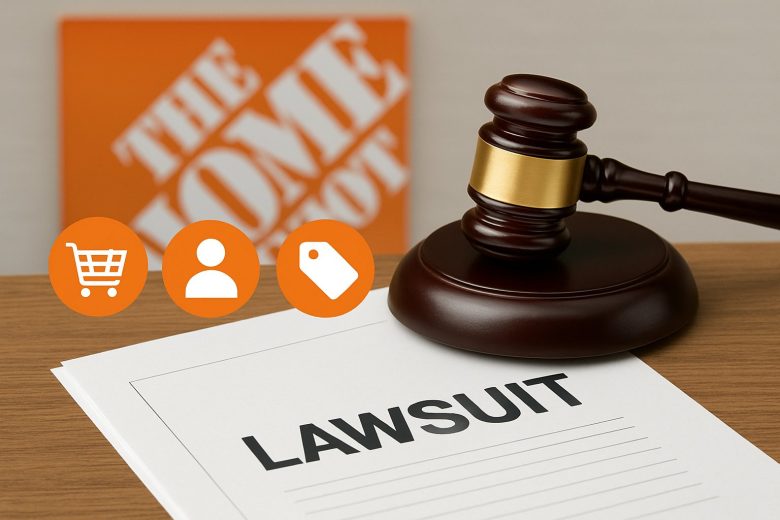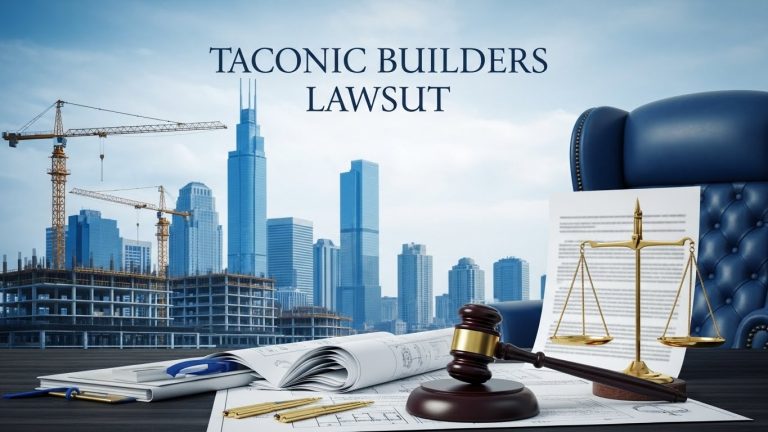The Home Depot Facing Class Action Lawsuit headlines cause confusion, as many stories refer to different cases. Some involve shoppers. Others involve workers. A few focus on pricing rules. Another focuses on data privacy in Canada. Each case has its own rules and timeline. Each case targets specific conduct. I will break down every major matter, show where each case stands today, and also indicate who could qualify. Then I will give you a clear plan. You will know what to save, what to watch, and what to do next.
Read This First: One Headline, Many Different Cases
News stories use one phrase. The phrase is Home Depot Facing Class Action Lawsuit. That phrase covers several matters. Each matter addresses a distinct issue and is assigned to a different court. Each matter follows a different law. You should map your facts to one bucket. Then you can judge eligibility, prepare documents, and track updates with ease.
Case Map: What Exists Right Now
I will map the active and recent matters and start with shoppers in Illinois. Then I will cover workers in Washington. Next, I will cover pricing and discounts. Finally, I will cover the Canadian privacy case. This map will help you sort your situation. It will also help you focus your evidence.
Illinois: Facial Recognition at Self-Checkout (BIPA)
What the lawsuit claims
Plaintiffs say Home Depot scanned faces at self-checkout. Plaintiffs claim that the company did not obtain permission. Additionally, plaintiffs claim that the company lacked a public retention policy. Illinois law calls that BIPA. BIPA requires notice, consent, and a compliant retention schedule. The lawsuit alleges that Home Depot failed to fulfill those duties. The lawsuit seeks statutory damages and an injunction. This case was filed in August 2025 and is currently at an early stage.
Why these matters
BIPA allows penalties per violation. Those penalties can scale quickly. Per-person damages can be significant. Courts can also order policy changes. Retailers watch these cases closely. Shoppers care about consent and retention. The case could shape store tech policies.
What to save
Keep receipts from Illinois stores. Note dates and store numbers. Save any photos of checkout screens. Save bank statements that show purchases—record details after each visit. Small details help later.
Washington: Employee Non-Compete Practices
What the lawsuit claims
Workers claim that Home Depot used unlawful non-compete agreements. The claim targets Washington locations. State law restricts non-competes. Many workers fall below the income threshold. The suit seeks damages and policy changes. The suit was filed in July 2025 and remains new. Courts have not ruled yet.
Why these matters
State law protects worker mobility. Unlawful restraints can limit wages. They can also restrict job movement. Remedies can include damages, voiding clauses, and can consist of policy reform. Early tracking helps affected staff.
What to save
Save any signed agreements, offer letters, and handbooks. Save HR emails about side work and policy pages from internal portals. Write down dates and manager names. Create a simple timeline.
California: Scanner Pricing Enforcement (Not a Class Payout)
What the case involved
Prosecutors said scanners overcharged shoppers. Shelf tags showed one price. Registers rang at a higher price. Home Depot resolved the case in 2024. The company agreed to pay nearly $2 million and also agreed to a compliance program. The judgment ended the enforcement. It did not create a claims site. It did not pay shoppers directly.
Why this matters
Government actions often change store systems. They can reduce future errors, mandate audits, and impose penalties. Shoppers still should keep receipts. That habit protects your rights later.
What to save
Save receipts that show price mismatches—photograph shelf tags when possible. Note the date and store number. Ask for a price check when unsure. Track any refunds granted at the register. Those notes can help in later disputes.
Georgia: “Original Price” Reference Discounts Online
What the lawsuit claims
Plaintiffs say Home Depot used false reference prices online. The suit says some “original” prices were inflated. The suit claims that some items were never sold at those higher prices. This case was filed in April 2024, and the matter remains pending. Consumers seek refunds and credits. The claim invokes Georgia consumer law.
Why this matters
Reference pricing can shape buying choices. False anchors can distort value. Courts view those allegations seriously. Many retailers face similar suits. Outcomes often drive policy changes. Some cases lead to class refunds.
What to save
Save screenshots of product pages. Capture the strikethrough price. Capture the sale price. Save your order confirmation, as well as delivery emails and invoices. Create a folder per order.
Canada: Email Receipt Data Shared with Meta
What the case alleges
Canadian plaintiffs say Home Depot shared email receipt data. The data went to Meta. The claim says consent was not clear or valid and the case seeks damages and practice changes. A court in British Columbia certified the class in January 2025. Proceedings now continue on the merits.
Why this matters
Data flows trigger privacy duties. Courts look at consent and purpose. Courts also weigh retention and reuse. Certification raises the stakes. Consumers could see relief later. Policy changes could follow judgment.
What to save
Save emailed receipts, account settings pages and save store receipts that mention email options. Also, save any privacy preference confirmations. Keep a log of consent prompts. These items support claims later.
Fast Facts Table
| Matter | Jurisdiction | Alleged Conduct | Current Stage | Who Could Qualify | Relief Path |
|---|---|---|---|---|---|
| Facial recognition at self-checkout | Illinois (BIPA) | Face scans without consent and policy disclosure | Newly filed Aug 2025 | Shoppers using self-checkout in IL stores | Statutory damages and injunction if plaintiffs prevail |
| Employee non-competes | Washington | Unlawful non-compete use at certain stores | Filed Jul 2025 | WA workers subject to restrictions | Damages and policy reform if class certified |
| Scanner pricing | California | Register price exceeded shelf tag | Judgment Sep 2024 | CA shoppers in impacted locations | Government penalties and compliance program, no class payouts |
| Reference pricing online | Georgia | Inflated “original” prices on site | Filed Apr 2024 | Online customers who purchased during claims period | Refunds or credits if settlement or verdict grants relief |
| Email receipt data to Meta | British Columbia, Canada | Sharing e-receipt data without valid consent | Certified Jan 2025 | Canadian customers who chose email receipts | Monetary and injunctive relief if plaintiffs prevail |
Step-By-Step: Check Your Eligibility Now
Step 1: Pick your bucket
Match your facts to one matter. Use location first. Use activity second. Shopped in Illinois at self-checkout? That is the BIPA case. Worked in Washington and signed a non-compete? That is the worker case. Ordered items online and saw bold strikethrough prices? That is the Georgia case. Selected email receipts in Canada? That is the BC case. Enforcement in California does not have claims. That case focused on penalties and compliance.
Step 2: Lock the timeframe
Write down exact dates. Note the store city and number, note the web order date and item SKU. and note the employment start date and end date. Precise dates support class period checks. Precise dates also support damage math.
Step 3: Build your evidence kit
Create one folder per matter. Add receipts, add screenshots and add contracts. Also, add emails, bank statements that show charges and photos of shelf tags when available. Name files with date prefixes. A tidy kit speeds reviews.
Step 4: Track official movement
Most cases sit at early stages. Certification has not occurred in the U.S. matters listed. Courts will handle motions next. Settlements can appear before certification. Claims sites launch only after approval. Check monthly. Avoid fake portals. Use court notices and major outlets.
Step 5: Review arbitration language
Some agreements include arbitration. Some include class waivers. Courts may enforce them. Counsel can assess exceptions. Keep copies of those clauses. Those pages matter in strategy.
Step 6: Decide next actions
Continue to monitor. Update your evidence kit. Record any new charges or issues. Stay reachable in case notices arrive. Consider speaking to counsel if losses are large. Clear records raise your chances.
Deeper Dive: What Courts Will Weigh
Consent and notice in Illinois
BIPA requires written notice and consent. Courts examine the exact words used. Courts also examine signage and screen prompts. A missing retention policy can weigh heavily. Plaintiffs will press these points. Defendants may contest facts and scope. Early motion practice will test the pleadings.
Worker mobility in Washington
State law protects wages and movement. Thresholds limit non-competes. Courts will assess roles and pay. Courts will review agreement texts. Remedies can cancel clauses and pay damages. Early rulings could steer settlement talks.
Pricing proof in Georgia
Reference pricing depends on history. Plaintiffs must show false anchors. Evidence includes price logs and change dates. Screenshots help a lot. Retailers may argue market changes. Courts will examine consumer impact. Outcomes can include credits or refunds.
Privacy consent in Canada
Consent standards are detailed. Courts study clarity and purpose. Data sharing terms face close review. Certification already occurred. The case now moves on substance. Potential relief can include damages and audits.
Evidence Checklist You Can Use Today
- Receipts with store numbers and dates.
- Screenshots of website prices and “original” prices.
- Order confirmations and invoices.
- Photos of self-checkout screens when available.
- Employment contracts and policy pages.
- HR emails about non-compete terms or outside work.
- Emailed receipts and privacy preference pages.
- Bank statements that show disputed charges.
Keep items in dated folders. Use clear file names. Example: 2025-08-06_HD_IL_SelfCheckout_Receipt.jpg. This structure saves time later.
Common Questions Answered
Is there a payout open today?
No open U.S. claims portals exist today. Courts have not approved settlements in the new matters. California’s case was government enforcement. That case paid penalties, not shopper refunds. Canada remains in progress after certification.
How often should I check updates?
Check monthly. That cadence balances effort and speed. Early news appears in dockets and major outlets. Claims sites appear only after approval. Patience helps avoid scams.
Could other states file similar cases?
Yes. Pricing and privacy suits often spread. Laws vary across states. Facts drive filings. Save evidence even outside listed states. Trends can expand quickly.
Do small receipts still matter?
Yes. Small receipts help place you in the class period. They also prove store visits. They can also show patterns. Keep everything until outcomes finalize.
Action Plan You Can Follow Now
- Choose your case bucket today.
- Create an evidence folder on your device.
- Add receipts, screenshots, and contracts.
- Set a monthly calendar reminder.
- Watch for certification and settlement news.
- Verify any claims site before filing.
- Consider legal advice if losses are large.
- Keep your contact information current.
These steps keep you ready, protect your rights and prevent missed windows.
Final Word: What This Means for You
The Home Depot Facing Class Action Lawsuit headline covers several legal paths. One path involves facial recognition in Illinois. Another covers worker non-competes in Washington. A third covers online reference pricing in Georgia. A fourth covers data sharing in Canada. California involved enforcement and compliance. Each path holds different rules and holds different timelines. Each path may lead to different relief.
You can prepare now and save the right documents. Moreover, you can track the next milestones, avoid fake portals and can confirm court notices. You can move fast when a window opens. This approach protects your options. This approach reduces stress and raises your chances of relief if it arrives. Stay alert, organized and ready for the next step on the Home Depot Facing Class Action Lawsuit matters.
Ayesha Awais is a content writer for JudicialNexus.com, covering accident reports, injury-related news, lawsuits, and public safety updates. All content is informational in nature and based on publicly available sources.




